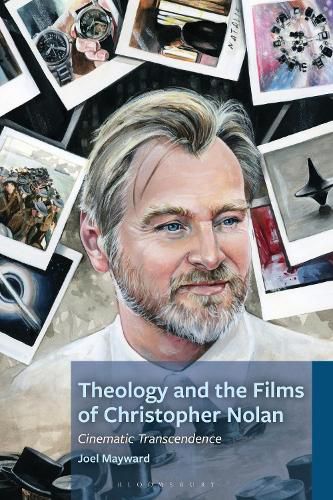Readings Newsletter
Become a Readings Member to make your shopping experience even easier.
Sign in or sign up for free!
You’re not far away from qualifying for FREE standard shipping within Australia
You’ve qualified for FREE standard shipping within Australia
The cart is loading…






This work of theological film criticism provides an analysis of filmmaker Christopher Nolan's entire filmography, from Following (1998) to Oppenheimer (2023).
Though his films are noticeably lacking in representations of religion or references to God, Nolan's postsecular cinema is nevertheless worthy of our theological consideration, as it contains valuable theological and philosophical insights. Indeed, this is the central claim of Theology and the Films of Christopher Nolan: Christopher Nolan's films can and should be considered works of cinematic philosophical theology-they are doing theology and philosophy through the medium of film as they explore what it means to be human in relation to the transcendent. This book identifies the deep parallels and resonances between Nolan's films and the works of philosopher Paul Ricoeur and theologian St. Augustine. Like Nolan's cinema, Theology and the Films of Christopher Nolan is both intellectually stimulating and highly accessible, satisfying the interests of both scholars and popular audiences alike.
$9.00 standard shipping within Australia
FREE standard shipping within Australia for orders over $100.00
Express & International shipping calculated at checkout
This work of theological film criticism provides an analysis of filmmaker Christopher Nolan's entire filmography, from Following (1998) to Oppenheimer (2023).
Though his films are noticeably lacking in representations of religion or references to God, Nolan's postsecular cinema is nevertheless worthy of our theological consideration, as it contains valuable theological and philosophical insights. Indeed, this is the central claim of Theology and the Films of Christopher Nolan: Christopher Nolan's films can and should be considered works of cinematic philosophical theology-they are doing theology and philosophy through the medium of film as they explore what it means to be human in relation to the transcendent. This book identifies the deep parallels and resonances between Nolan's films and the works of philosopher Paul Ricoeur and theologian St. Augustine. Like Nolan's cinema, Theology and the Films of Christopher Nolan is both intellectually stimulating and highly accessible, satisfying the interests of both scholars and popular audiences alike.